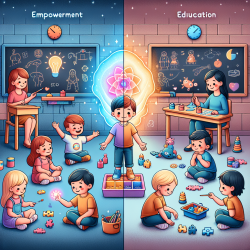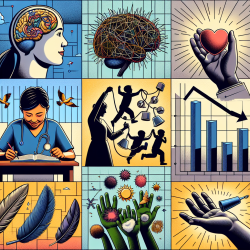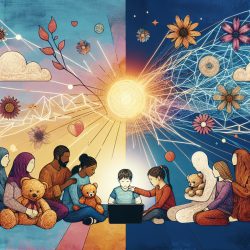Understanding Children's Online Victimization: Key Insights for Practitioners
In the digital age, children are increasingly exposed to online environments that pose both opportunities and risks. A recent study titled Understanding Children’s Online Victimization through the Psychosocial Lens: The Roles of Loneliness, Online Social Currency, and Digital Citizenship provides valuable insights into how loneliness, online social currency, and digital citizenship contribute to online victimization among children. This blog aims to help practitioners leverage these findings to improve their strategies in protecting children online.
The Study at a Glance
The study, conducted with 196 fifth-grade students, reveals that online victimization is a prevalent issue, with significant percentages of children experiencing harassment, rude comments, and cyberbullying. The research identifies loneliness and online social currency disturbance as risk factors, while digital citizenship acts as a protective factor against online victimization.
Loneliness: A Risk Factor
Loneliness is linked to an increased risk of online victimization. Children who feel lonely may seek social connections online, which can make them vulnerable to cyberbullying and harassment. Practitioners should focus on fostering supportive social environments both online and offline to mitigate loneliness and its associated risks.
Online Social Currency: A Double-Edged Sword
Online social currency, such as likes and comments, can impact children's self-worth and increase their vulnerability to online victimization. Children may engage in risky behaviors to gain social validation, making them targets for online predators. Educators and parents should educate children about the implications of online social currency and encourage healthy online interactions.
Digital Citizenship: A Protective Shield
Digital citizenship, which encompasses responsible and ethical online behavior, is crucial in reducing the risk of online victimization. By promoting digital citizenship, practitioners can empower children to navigate online spaces safely and responsibly. Implementing digital citizenship curricula in schools can provide children with the tools they need to protect themselves online.
Practical Applications for Practitioners
- Develop programs that promote social skills and peer support to reduce loneliness among children.
- Incorporate discussions about the impact of online social currency in digital literacy education.
- Implement digital citizenship curricula that emphasize respect, critical thinking, and ethical online behavior.
- Encourage parents to engage in open dialogues with their children about their online experiences and the importance of digital citizenship.
Conclusion
Understanding the roles of loneliness, online social currency, and digital citizenship is vital in addressing online victimization among children. By applying these insights, practitioners can create safer online environments and promote positive online experiences for children. To read the original research paper, please follow this link: Understanding Children’s Online Victimization through the Psychosocial Lens: The Roles of Loneliness, Online Social Currency, and Digital Citizenship.










